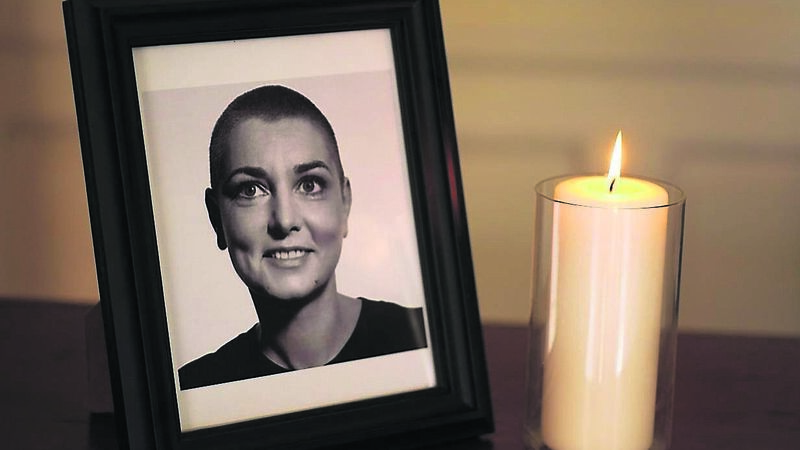Sinead O'Connor was one of the all-time greats

‘Sinead O’Connor was not a part-time activist, she was a real one, and she will be sadly missed by us all.’
I will concentrate on the impact she made on myself and other youngsters through her love of hip-hop, which was coming of age at the same time that Sinead’s career was taking off internationally.
For those of us who were only teens at the time, she struck a chord, and in a post punk world where many youth continued to feel alienated, many of us bonded through this newer music that came from mainly abroad.
Ireland has not always showered Sinead O’Connor with the kind of love she has received this last week but I’m thankful that on one of her final public appearances she seemed genuinely moved by the reception she got. At Vicar Street only a few months, she received a standing ovation for her “I Do Not Want What I Have Not Got” record, which had been awarded classic album status by the Irish music industry at the Choice music awards. Sinead dedicated the award to “each and every member of Ireland’s refugee community”, stating that “you are very welcome in Ireland”, while wishing them “love and happiness”.
It was typical of Sinead, always standing up for the outsider, and always giving a voice to those who needed it most. Perhaps, this is one of the reasons why she was drawn to hip-hop so much.
Through a 2023 lens it may not seem a big deal that one of our biggest stars was a hip-hop fan. But in the late 80s and early 90s things were very different. Hip-hop was not on the radio then and us youngsters in Ireland had to dig deep to find it. Even in the USA, there was a huge backlash against music that had been steadily exploding for over a decade.
It was fine when it remained a “hood” phenomenon. But when it got into the living rooms of white teenagers it suddenly posed a threat to middle America. The safer rap music it could mildly tolerate, but when Public Enemy and N.W.A. broke through, America was on the defensive.
As we grasped for any bit of hip-hop news in those pre-internet days, it was always heartening to hear Sinead being eloquent about it in the media; standing up for the artists.
Her grasp of hip-hop was far greater than that of most music journalists here or in the States, but she also walked the walk more than most rap fans too. She shaved her head in the style of Public Enemy’s logo in solidarity with them after a protest at the Grammys, which to this day rarely televises its largely token rap categories live on TV.
She featured emerging rapper MC Lyte and gave her equal billing, while she enlisted Public Enemy’s Bomb Squad on production for some of her most potent tracks too. She also appeared alongside Marxman on Ship Ahoy.
Is it any wonder that the hip-hop community were front and centre as the tributes poured in this week. Chuck D, Flavor Flav, Ice T, Questlove, B+, Talib Kweli, Bun B, MC Lyte and many more waxed lyrical about the impact of Sinead, but the tributes were universal.
Rarely has an Irish person made such an impression, and thankfully the great music she made immortalises the power of this amazing art forever. Her voice, her songwriting and her whole vision were all out of this world, and maybe now, her wonderful later material will find a bigger audience.
Sinead wilfully turned away from these bigger audiences herself and she was uncomfortable with her fame, but the music from her post pop era remains criminally ignored.
She delved deep into reggae, another huge passion, and she enlisted the best in the business, Sly and Robbie, to help her on “Throw down your arms”, recorded in Kingston, Jamaica.
She explored both obscure and well-known traditional Irish songs and continued to walk her own path, and continued to stand up for what she believed in too. Many artists fear that speaking up will impact their career negatively, but Sinead O’Connor was not a part-time activist, she was a real one, and she will be sadly missed by us all. She really was one of the all time greats.







